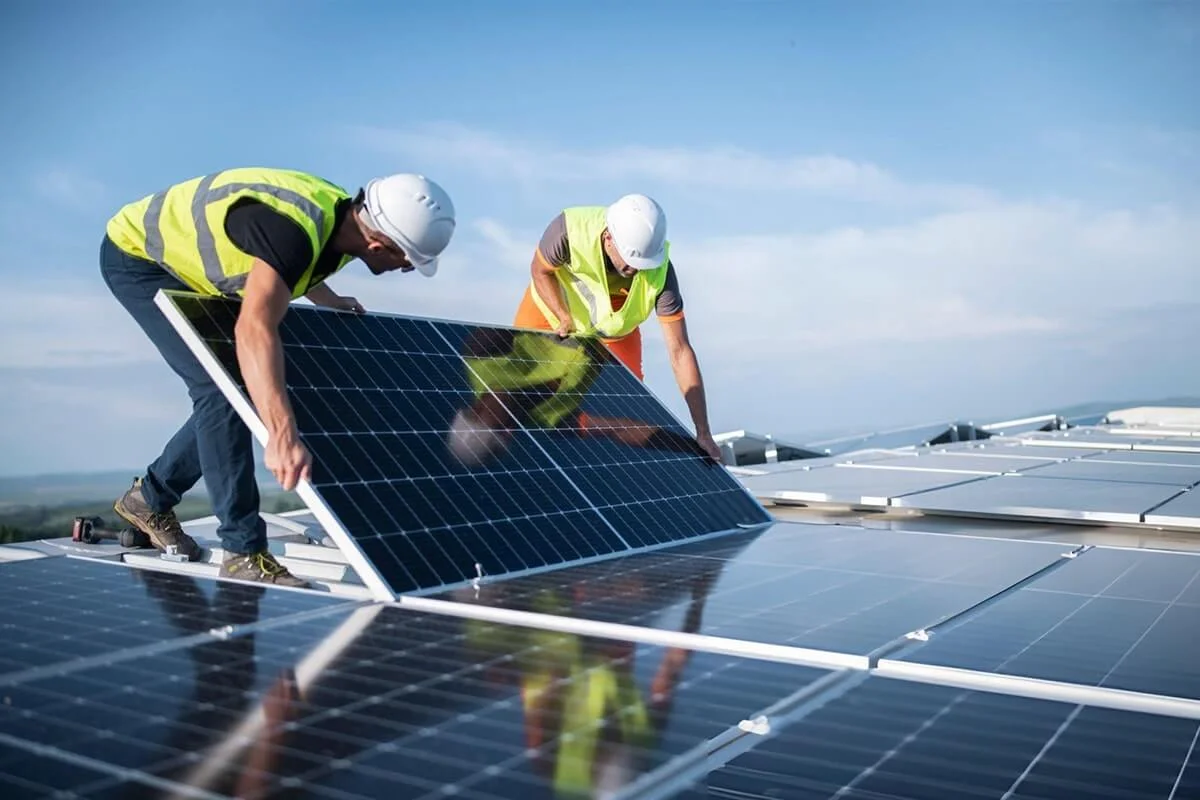As the world becomes more environmentally conscious and energy costs continue to rise, homeowners are increasingly looking for ways to reduce their reliance on traditional energy sources. Solar panels have emerged as one of the most effective and accessible ways for homeowners to save money, reduce their carbon footprint, and increase their home’s value. But why are solar panels essential for homes in today’s world? This blog will explore the various benefits of solar energy and explain why installing solar panels is a wise investment for any homeowner.
1. Significant Energy Cost Savings
One of the most immediate and impactful benefits of solar panels is the financial savings. Electricity prices are notoriously unpredictable and have steadily increased over time, leaving homeowners with higher energy bills. Solar panels offer a solution by harnessing the free and abundant energy of the sun to power homes. Once a solar energy system is installed, homeowners can significantly reduce or even eliminate their monthly electricity bills.
While the upfront cost of solar panel installation can seem substantial, many homeowners see a return on their investment within a few years due to the savings on their energy bills. In fact, depending on the size of the system and local energy rates, solar panels can lead to thousands of dollars in savings over their lifetime. Additionally, federal and state incentives, such as tax credits and rebates, can further reduce the cost of installation, making solar energy more affordable than ever.
2. Energy Independence
Solar panels provide homeowners with energy independence, allowing them to generate their own electricity rather than relying solely on the grid. This is particularly important in areas where power outages are common or during extreme weather events that can disrupt traditional energy supplies. With solar panels and energy storage options, such as solar batteries, homeowners can store excess energy produced during the day and use it at night or during times when the grid is down. This ensures a continuous and reliable power supply, even during emergencies.
Energy independence also means that homeowners are less affected by fluctuations in energy prices. While utility companies may raise rates in response to increased demand or other factors, those with solar panels can continue to generate their own electricity, avoiding the impact of these price hikes. Over time, this stability can lead to more predictable and manageable energy costs.
3. Environmental Impact
One of the most important reasons to consider solar panels is the positive impact they have on the environment. Traditional energy sources, such as coal, natural gas, and oil, contribute to greenhouse gas emissions and air pollution, both of which are major drivers of climate change. Solar energy, on the other hand, is a clean, renewable resource that produces no harmful emissions when generating electricity.
By installing solar panels, homeowners can significantly reduce their carbon footprint and contribute to the global effort to combat climate change. A typical residential solar panel system can offset several tons of carbon dioxide each year, equivalent to planting hundreds of trees. For eco-conscious homeowners, solar panels offer a tangible way to reduce environmental impact while still meeting their energy needs.
4. Increased Property Value
Solar panels are not only a smart financial investment in terms of energy savings but also in terms of increasing property value. Numerous studies have shown that homes with solar panels tend to sell for more than comparable homes without them. This is because prospective buyers recognize the long-term financial benefits and the reduced energy costs associated with a solar-powered home.
Additionally, as more people become aware of the environmental and economic advantages of solar energy, the demand for homes with pre-installed solar systems is expected to increase. This makes solar panels an attractive feature for buyers, giving homeowners a competitive edge in the real estate market. Investing in solar panels can also result in a faster sale, as energy-efficient homes are increasingly appealing to environmentally conscious consumers.
5. Durability and Low Maintenance
Solar panels are designed to be highly durable and require minimal maintenance over their lifespan, which can be 25 years or more. Most panels are built to withstand harsh weather conditions, including heavy rain, snow, and high winds, ensuring they continue to operate efficiently year-round. Once installed, solar panels need little more than occasional cleaning to remove dirt and debris, and routine inspections to ensure all components are functioning properly.
The long lifespan and low maintenance requirements of solar panels make them an attractive option for homeowners who want a reliable and hassle-free energy solution. Additionally, most solar panel manufacturers offer warranties that cover the performance and durability of the panels for 20 to 25 years, providing homeowners with peace of mind and protection against potential issues.
6. Support for Renewable Energy Growth
By choosing solar energy, homeowners play a direct role in supporting the growth of the renewable energy industry. As more people invest in solar power, the demand for clean energy technologies increases, driving innovation and lowering costs for future consumers. This creates a positive feedback loop where the more people adopt solar, the more accessible and affordable it becomes for others.
Supporting renewable energy also helps reduce the reliance on fossil fuels, which have finite reserves and contribute to environmental degradation. Solar power, being a virtually limitless resource, is a critical component of the transition to a more sustainable and resilient energy grid. Homeowners who invest in solar energy are not only benefiting themselves but are also contributing to a broader shift toward a greener future.
7. Job Creation and Economic Growth
The solar industry has become a significant source of job creation and economic growth. As the demand for solar installations and related services grows, so does the need for skilled workers in areas such as manufacturing, installation, maintenance, and sales. By investing in solar panels, homeowners are indirectly supporting local jobs and contributing to the economy.
In many communities, solar energy has helped drive economic development by creating new business opportunities and expanding the local workforce. As more people switch to solar, this trend is likely to continue, further strengthening the economic benefits of renewable energy.
Conclusion
Solar panels have evolved from a niche technology to a mainstream solution for homeowners seeking to reduce energy costs, increase property value, and contribute to environmental sustainability. The long-term financial savings, coupled with the positive impact on the environment and the added energy independence, make solar panels an essential investment for any home. With the availability of government incentives and advancements in solar technology, there has never been a better time to make the switch to solar energy. By choosing solar panels, homeowners can enjoy clean, reliable power while playing a part in the global movement toward a greener future.



